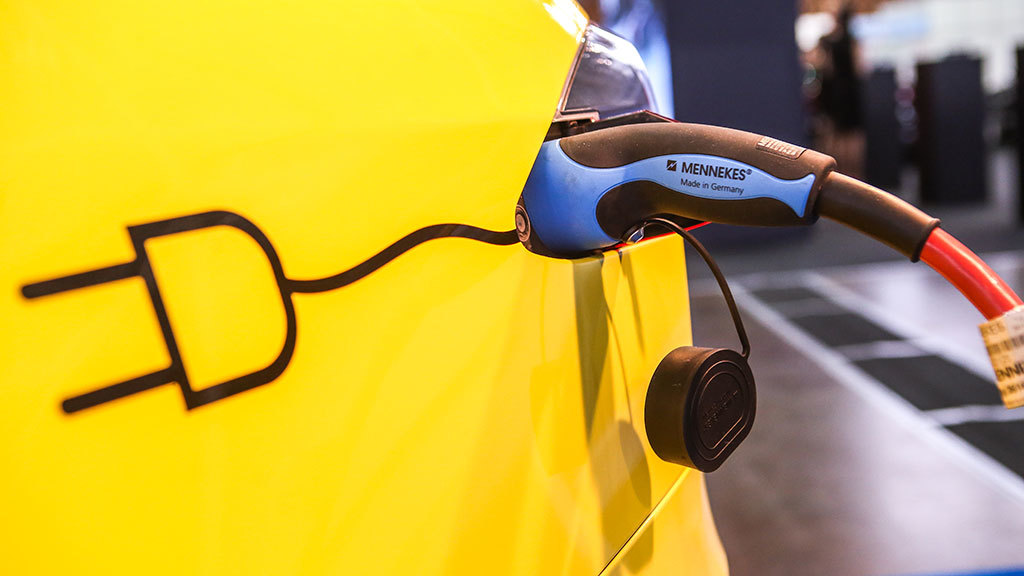Minpromtorg is going to significantly increase the recycling fee for electric vehicles
 November 9, Minpromtorg published (regulation.gov.ru) the draft amending the government decree on the recycling fee levy. They provide for indexation of recycling fee for imported new electric vehicles by almost 9 times, for used electric vehicles older than three years - by almost 4 times. According to the document, the changes should come into force on January 1, 2022.
November 9, Minpromtorg published (regulation.gov.ru) the draft amending the government decree on the recycling fee levy. They provide for indexation of recycling fee for imported new electric vehicles by almost 9 times, for used electric vehicles older than three years - by almost 4 times. According to the document, the changes should come into force on January 1, 2022.
The recycling fee consists of the base rate and the coefficient (the rate multiplies by the coefficient). The Ministry of Industry and Trade proposes to increase the coefficients of electric vehicles: from 1.63 to 14.4 when importing new electric vehicles into the country and from 6.1 to 24.1 for cars with an electric motor older than three years. At the same time, the payment of the recycling fee for a car imported by an individual for personal use will increase by 25%, it follows from the explanatory note to the project. It does not matter whether it is electric or with an internal combustion engine. The fee will be 4,500 and 6,500 rubles for a new and used car.
The project was developed as part of the implementation of the concept for the product development and use of electric vehicles in Russia until 2030, said the Minpromtorg representative. According to that, by the end of 2024, it is planned to produce at least 25,000 electric vehicles and launch 9400 charging stations. By 2030, every tenth car produced in the Russian Federation should be electric. The total budget of the concept is estimated at 591 billion rubles until 2030, more than 80% are extra–budgetary sources.
The only mass electric transport project in the Russian Federation - electric bus. Passenger electric cars are not yet produced in Russia. The entrepreneur Denis Shchurovsky (Zetta company) has plans for their release, Kamaz (a joint development with St. Petersburg Polytechnic University - a compact electric car Kama-1) and Avtotor.
Sales of new foreign electric vehicles in Russia are increasing. According to the Association of European Businesses (AEB), they have increased by 118% since the beginning of the year to 845 pcs. Today, electric cars are imported from outside the Eurasian Economic Union (EAEU; except the Russian Federation, there are Belarus, Kazakhstan, Armenia and Kyrgyzstan). The duty on the import of electric vehicles to nuclear power plants was reduced from 15% to 0% in May 2020, this rate is valid until the end of 2021.
In August, according to Vedomosti, Belarus proposed to the Eurasian Economic Commission (EEC) to extend the zero duty for electric vehicles until December 31, 2023. At a meeting of the EEC Council at the end of October, the Russian party opposed it. In October, the Head of the AEB Committee of Automakers announced that the positive development of the electric vehicle sector in the Russian Federation could be seriously undermined by the refusal to extend the zero rate of import customs duty for them.
Sollers group representative said that the company supports the initiative of the Minpromtorg to increase the recycling fee rates for electric vehicles. "This is a necessary requirement for stimulating investments in the localization of electric vehicle production in Russia," he says.
The foundation of the electric vehicle industry will require a significant restructuring of existing automotive industries and, in some cases, the creation of new capacities. In particular, lithium compounds are needed for electric batteries. The IEA estimated a 133-fold increase in demand for lithium related to energy transfer and battery production, 33–fold for cobalt, and 30-fold for nickel, by 2040. There is also a growing demand for neodymium, which is required for magnets used in electric car engines. According to Minpromtorg, the industrial production of lithium is not under implementation in Russia, despite the presence of projected resources of 1 million tons.
Original is on the website: ВЕДОМОСТИ


